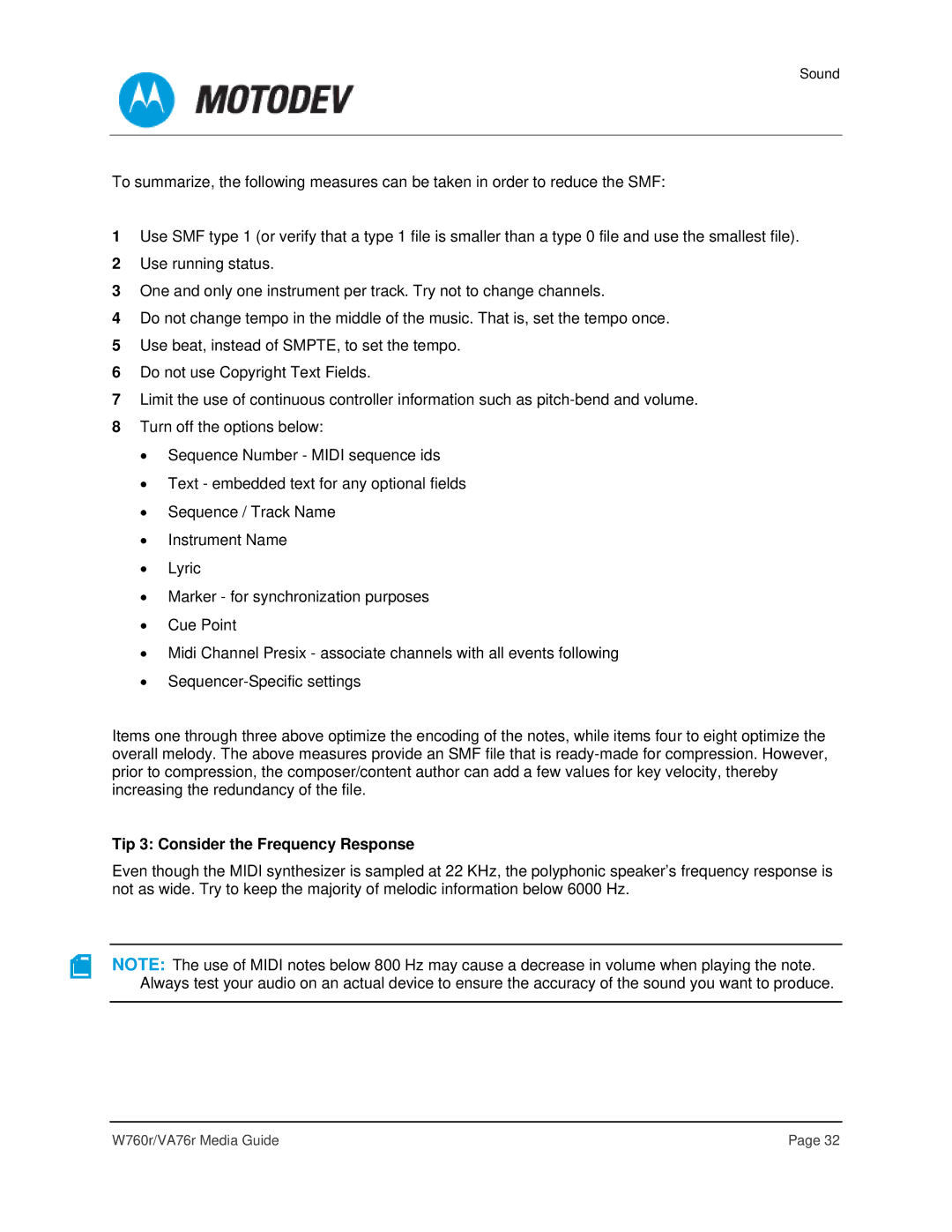
Sound
To summarize, the following measures can be taken in order to reduce the SMF:
1Use SMF type 1 (or verify that a type 1 file is smaller than a type 0 file and use the smallest file).
2Use running status.
3One and only one instrument per track. Try not to change channels.
4Do not change tempo in the middle of the music. That is, set the tempo once.
5Use beat, instead of SMPTE, to set the tempo.
6Do not use Copyright Text Fields.
7Limit the use of continuous controller information such as
8Turn off the options below:
•Sequence Number - MIDI sequence ids
•Text - embedded text for any optional fields
•Sequence / Track Name
•Instrument Name
•Lyric
•Marker - for synchronization purposes
•Cue Point
•Midi Channel Presix - associate channels with all events following
•
Items one through three above optimize the encoding of the notes, while items four to eight optimize the overall melody. The above measures provide an SMF file that is
Tip 3: Consider the Frequency Response
Even though the MIDI synthesizer is sampled at 22 KHz, the polyphonic speaker’s frequency response is not as wide. Try to keep the majority of melodic information below 6000 Hz.
NOTE: The use of MIDI notes below 800 Hz may cause a decrease in volume when playing the note. Always test your audio on an actual device to ensure the accuracy of the sound you want to produce.
W760r/VA76r Media Guide | Page 32 |
